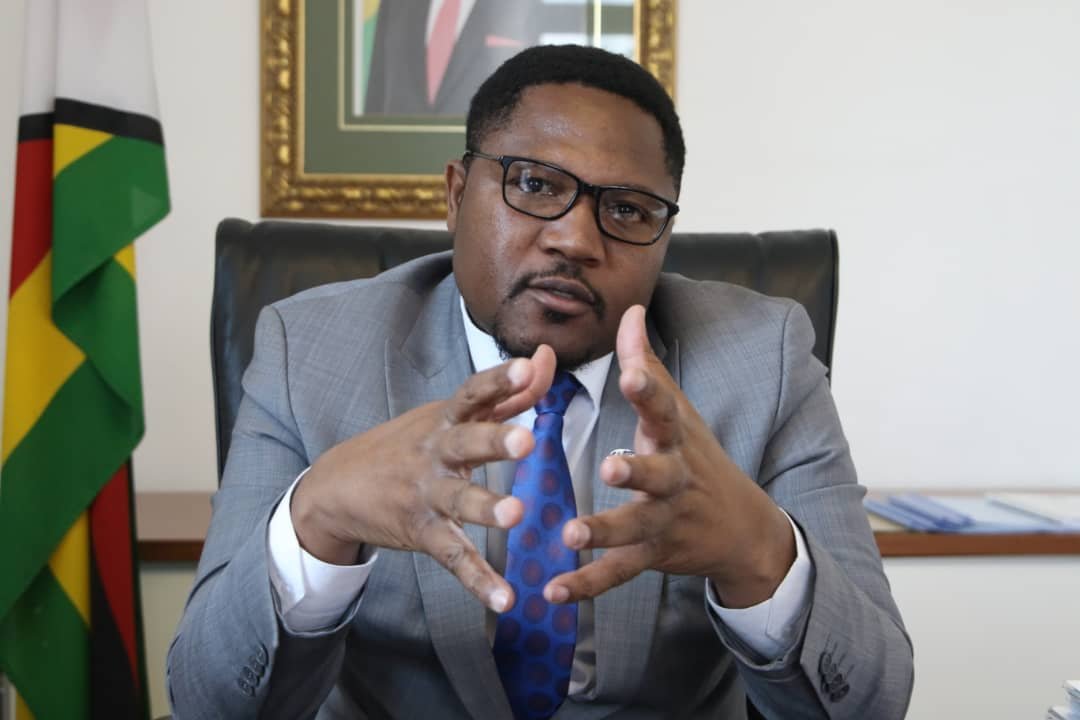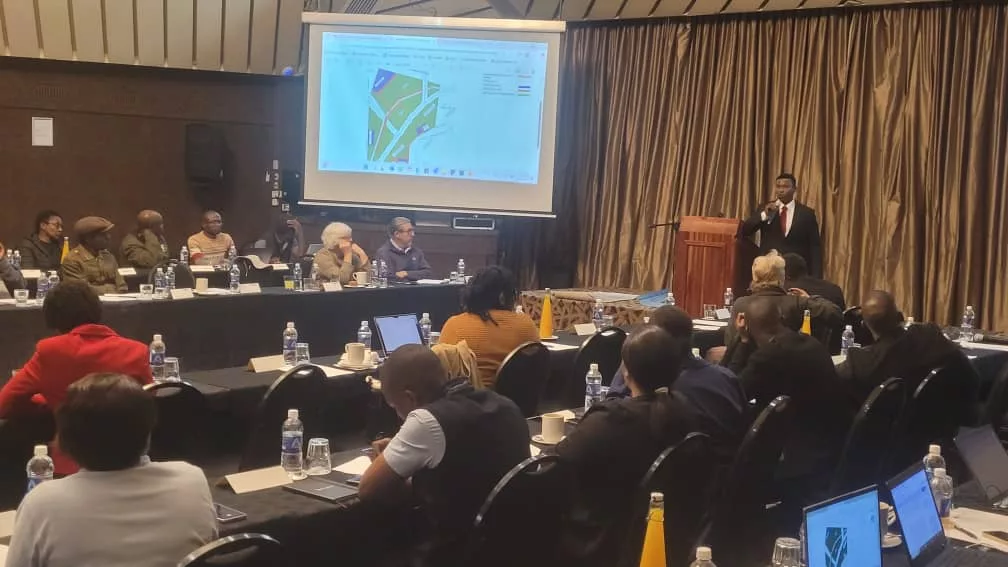Deputy Information Minister Energy Mutodi – the second top ranking government spokesperson – well known for coming up vacuous solutions, making reckless statements and empty-threats in response to Zimbabwe’s current economic situation. Just a few days after making headlines that ‘Air Zimbabwe Plane Not Safe For President ED.’ Energy Mutodi is back again threatening Econet Wireless proposing to invite MTN in Zimbabwe as a solution to data tariff adjustments recently introduced by all mobile network operators a few days ago.
Econet data bundle prices are obscene given it’s huge market share & increased social media usage.— Hon. Energy Mutodi (MP) (@energymutodi) May 2, 2019
Netone has fewer customers and its bundles have very low demand. For Econet I was expecting the company directors to capitalize on the economies of scale and charge less for bundles but targeting volumes which they already have. We don’t want to be tempted to invite MTN.— Hon. Energy Mutodi (MP) (@energymutodi) May 2, 2019
Now to answer Mutodi’s both threat and solution – to invite MTN, we are sorry to bust your bubble but that it is no longer possible for new Mobile Network Operator (MNOs) licences to be issued as the available spectrum had run out. Zimbabwe does not need new mobile network operators given its geographic size and the size of the population. Hence the only reasonable solution is Privatisation of State-Owned Enterprises (SOEs) like what Finance Minister Mthuli Ncube is pushing under his Economic Reform Programme – Transitional Stabilisation Programme (TSP).
Zimbabwe currently has 5 mobile network operators namely Econet Wireless Zimbabwe, Telecel Zimbabwe, Netone, Africom and Powertel. The last two peddle CDMA wares, therefore, going by what I have just mentioned it means the Government has given itself at least four bands!
Are State Operators Wasting Spectrum?
The most disheartening thing to me is how the government continues to dish out licences to various parastatals it owns despite them not delivering. It is unfair to private players that parastatals get spectrum that they might never use. A case in point is how TelOne has basically wasted its mobile licence for years apart from a forgettable foray in CDMA.
Powertel is still selling CDMA modems despite it being old technology while they sit on their LTE spectrum. It makes zero sense that the government seems to have given itself three licences for free! Parastatals are notorious for their defaulting on licence payments.
Well, going back to the real issue at hand, the new prices are in line with the prevailing price movements in the economy, as the loss of value in the local currency following the new monetary policy has seen suppliers affecting price increases on their products and services, as costs have gone up.
“The adjustment in prices, reflected in our new data bouquets, is a direct response to the rise in service delivery costs across the industry,” said Econet’s Group Media Relations and Corporate Communications Executive, Mr Fungai Mandiveyi.
While the new bundles offer a lot more value than before, the floating of the local currency to the USD, which led to the devaluation of the local currency by over 300 percent and the three-fold increase in fuel prices, among many other things, have significantly increased our costs and necessitated the upward price adjustment in order for us to be able to continue to deliver quality service, and for the industry to remain viable
Last week, state owned telecoms operator NetOne announced that it had adjusted its OneFusion data bundle, which had been heavily discounted, and was now offering less for the same amount. While the amount paid for a bundle did not change, the package now offered 83 percent less than the previous bundle.
The OneFusion Lite promotional package which costs RTGS$10, used to offer 130 on-net minutes, 25 off-net minutes, 1,1 GB of data, 100 SMSs and 450 MB of Whatsapp. But following the changes, it now offers less in a move that signals the operator’s bid to remain viable in the face of rising industry costs.
According to NetOne, the new package now offers 15 on-net minutes, 5 off-net minutes, 180 MB data bundles, 90MB Whatsapp bundles and 5 SMSs. The changes effectively mean the MNO has made an upward adjustment on its data tariffs.
Telecel has also made tariff changes which has seen data bundles being reduced and the effective data price going up. A Whatsapp weekly bundle, which used to cost RTGS$1 for 140 MB, has now been replaced by one which costs $2 for 100MB.
While consumers can ever be prepared, or gladly welcome an increase in the price or tariff of any service or product, most subscribers must have seen this one coming given the monetary and inflationary changes in the economy.
Mobile network operators do not operate in a vacuum and thus they are not immune to the economic vagaries that affect other economic players. Zimbabwe has been going through much, with the unavailability of foreign currency proving a challenge.
Central to this matter is the cost of international bandwidth, an imported commodity, which the mobile network operators must settle in scarce foreign currency.
And for mobile network operators, the need to continuously upgrade their networks, both hardware and software, the availability of foreign currency is key.
Unlike in the past, when foreign currency, if available, was at a 1:1 ratio with the local currency, the introduction of the forex interbank market has meant local players have to pay more, not less than 3.25 times currently, to access foreign currency.
In addition to the exchange rate changes, the cost of doing business in Zimbabwe has risen sharply over the recent past forcing local businesses to put up prices or tariffs.
The decision by NetOne, Telecel and now Econet, should not come as a surprise as much as it may not be initially popular with data users.
Back in January in an interview during internet shutdown, Energy Mutodi declared that the internet had not been blocked but that there was too much congestion caused by people who were posting videos and looking for information about the protests on social media.
Mutodi went further to ‘advise’ us all to buy internet bundles as they had probably run out. The audacity! Here is a video of the Deputy Minister blatantly lying:
Energy Mutodi doesn’t seem to amaze us anymore because since becoming Deputy Information Minister he has suggested vacuous solutions that leaves one wondering how on earth did he become a minister?
In January he told Zimbabweans to park their cars and use bicycles if they can not afford the high fuel charges introduced by President Emmerson Mnangagwa
Faced with high fuel costs, clever people know what to do & here are some tips: Avoid fuel guzzler, reduce fleet, cancel unnecessary trips & use bicycles where possible to save BIG. Do not protest in the street you can lose a limp in skirmishes.— Hon. Energy Mutodi (MP) (@energymutodi) January 13, 2019
For a country that has no currency of its own, no competitive industry & no jobs, price control is the way to go in order to protect the poor. It’s very unfortunate that cabinet has not foreseen this but it’s time we take necessary steps. Happy 39th Birthday Zimbabwe.— Hon. Energy Mutodi (MP) (@energymutodi) April 18, 2019
The exchange rate is collapsing every day, the price of the US dollar continues to firm against the fictitious RTGS dollar. It is fictitious both by definition and by reality, therefore Mutodi’s threats to invite MTN is not viable and reckless.






